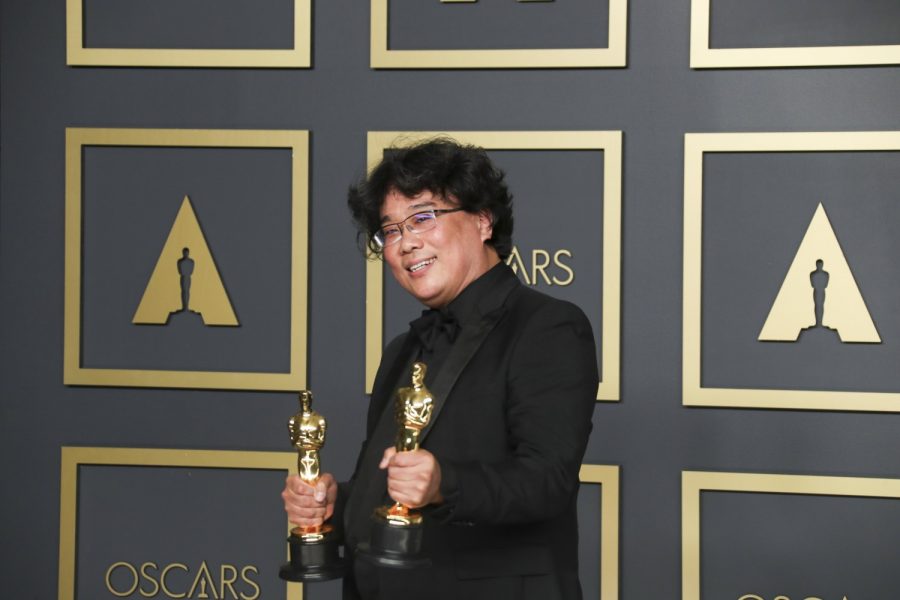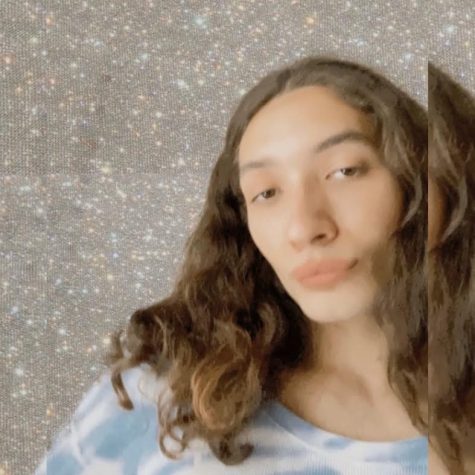The 92nd Academy Awards ceremony was held on Sunday, Feb. 9, 2020, at the Dolby Theatre in Hollywood. The annual event highlights some of the most successful artistic films of the past year.
Todd Phillips’ “Joker” led the pack with the most recognition this evening, earning a total of 11 nominations. Trailing behind with 10 nominations each were: Martin Scorsese’s “The Irishman,” Quentin Tarantino’s “Once Upon a Time… in Hollywood,” and Sam Mendes’ “1917.” Competitors for the Best Picture included those previously mentioned, as well as, James Mangold’s “Ford v. Ferrari,” Taika Waititi’s “Jojo Rabbit,” Greta Gerwig’s “Little Women,” Noah Baumbach’s “Marriage Story,” and Bong Joon-Ho’s “Parasite.”
The Best Picture Oscar was awarded to “Parasite,” along with Bong Joon-Ho’s triumph in winning Best Director for his film.
“Parasite” was the project that brought home the most awards Sunday night with four Oscars. The categories being, Best Picture, Best Director, International Feature Film, and Original Screenplay. By the end of the event, the film also made history as the first foreign-language film to win Best Picture in the nearly century-long history of the Oscars. The news of this incredible feat was the most exciting thing to come out of the 2020 Oscars since this year’s televised event felt especially lackluster. It is not doing the award shows any favors to continue to tackle their projects as hostless and with outdated routines.
Nominees for Best Actress were Charlize Theron for “Bombshell,” Cynthia Erivo for “Harriet,” Renee Zellweger for “Judy,” Saoirse Ronan for “Little Women,” and Scarlett Johansson for “Marriage Story.” Best Actor contenders were Adam Driver for “Marriage Story,” Antonio Banderas for “Pain and Glory,” Joaquin Phoenix for “Joker,” Jonathan Pryce for “The Two Popes,” and Leonardo DiCaprio for “Once Upon a Time… in Hollywood.”
Best Supporting Actress competitors were Florence Pugh for “Little Women,” Kathy Bates for “Richard Jewell,” Laura Dern for “Marriage Story,” Margot Robbie for “Bombshell,” and Scarlett Johansson for “Jojo Rabbit.” On the flip side, Al Pacino for “The Irishman,” Anthony Hopkins for “The Two Popes,” Brad Pitt for “Once Upon a Time… in Hollywood,” Joe Pesci for “The Irishman,” and Tom Hanks for “A Beautiful Day in the Neighborhood” all competed for Best Supporting Actor.
Renee Zellwegger won Best Actress for her role in “Judy,” while Joaquin Phoenix won Best Actor for his portrayal in “Joker.” Laura Dern won Best Supporting Actress for her work in “Marriage Story,” and Brad Pitt won Best Supporting Actor for his character in “Once Upon a Time… in Hollywood.”
The event took place, but of course not without controversy. Many people in the industry and fans alike pointed out that no female directors were nominated in the Best Director category. In solidarity, actress Natalie Portman wore a Dior gown and cape on the red carpet honoring the female directors that were “snubbed” this Oscars season. The names embroidered on her gown include: Alma Har’el for “Honeyboy,” Céline Sciamma for “Portrait of a Lady On Fire,” Greta Gerwig for “Little Women,” Lorene Scafaria for “Hustlers,” Lulu Wang for “The Farewell,” Marielle Heller for “A Beautiful Day in the Neighborhood,” Mati Diop for “Atlantics,” and Melina Matsoukas for “Queen and Slim.”
Controversy surrounding the event of the Academy Awards is nothing new. In 2015, the organization was bashed for its lack of inclusivity, initiating the hashtag #OscarsSoWhite going viral on social media forums. Social media was quick to notice the continuous lack of diverse and inclusive nominees at the Oscars, and though there does seem to be some progress in the industry, it is still lackluster and far from what the real world is like today. The industry continues to carry itself as the upper-echelon of society and because their lack of effort to change its outdated ways is quite apparent, the exclusivity of their notoriety feels blatantly non-inclusive.
Perhaps the record-low total viewership (23.6 million down 20% from 2019’s 29.6 million) on Hollywood’s biggest night is due to the lack of change, progress, and inclusivity from Hollywood. Pressuring the industry to adapt to the demands of a changing world will hopefully expand their horizons for the award shows in years to come.




